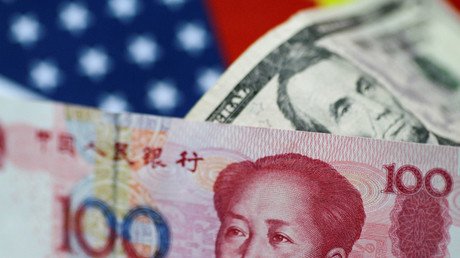Washington looking for anti-monopoly tool to kneecap OPEC oil cartel

The US Department of Justice is reportedly exploring the possibility of introducing antitrust legislation that will allow the White House to reduce the power of the Organization of the Petroleum Exporting Countries (OPEC).
The measure has been triggered by the oil cartel’s successful attempts to bring global prices for crude under control. OPEC members and their non-OPEC allies, led by Russia, managed to affect global oil prices by establishing production quotas. The step reportedly raised costs for US consumers, an unnamed department official told Bloomberg.
“That’s traditionally the type of conduct the Justice Department would frown upon,” the media quotes the source as saying. The anti-OPEC bills, reportedly backed by both Republicans and Democrats, were introduced in the House and Senate, but neither chamber has voted on the legislation yet.
However, in June, the House Judiciary Committee approved the “No Oil Producing and Exporting Cartels Act.” The legislation, known as NOPEC bill, authorizes the US attorney general to sue the oil cartel over its efforts to put oil output and crude prices under control.
US President Donald Trump has repeatedly blamed OPEC for rising oil prices, demanding that participants of the organization should increase crude production.
In late 2016, the member countries along with non-OPEC producers, including Russia, made a multinational pact aimed at curbing total oil output by 1.8 million barrels per day (bpd) in order to support sliding prices. Back then, Russia pledged to cut 300,000 bpd out of 560,000 for total non-OPEC cuts. The agreement came into effect in early 2017, and was later extended until the end of the current year.
The recent collapse in oil prices has forced OPEC and its partners to summon another meeting which is scheduled for December. Participants may discuss further curbing of output for 2019. OPEC’s biggest producer, Saudi Arabia, has already backed potential production cuts. The oil-rich kingdom pledged to trim its shipments by 500,000 bpd starting next month.
For more stories on economy & finance visit RT's business section















